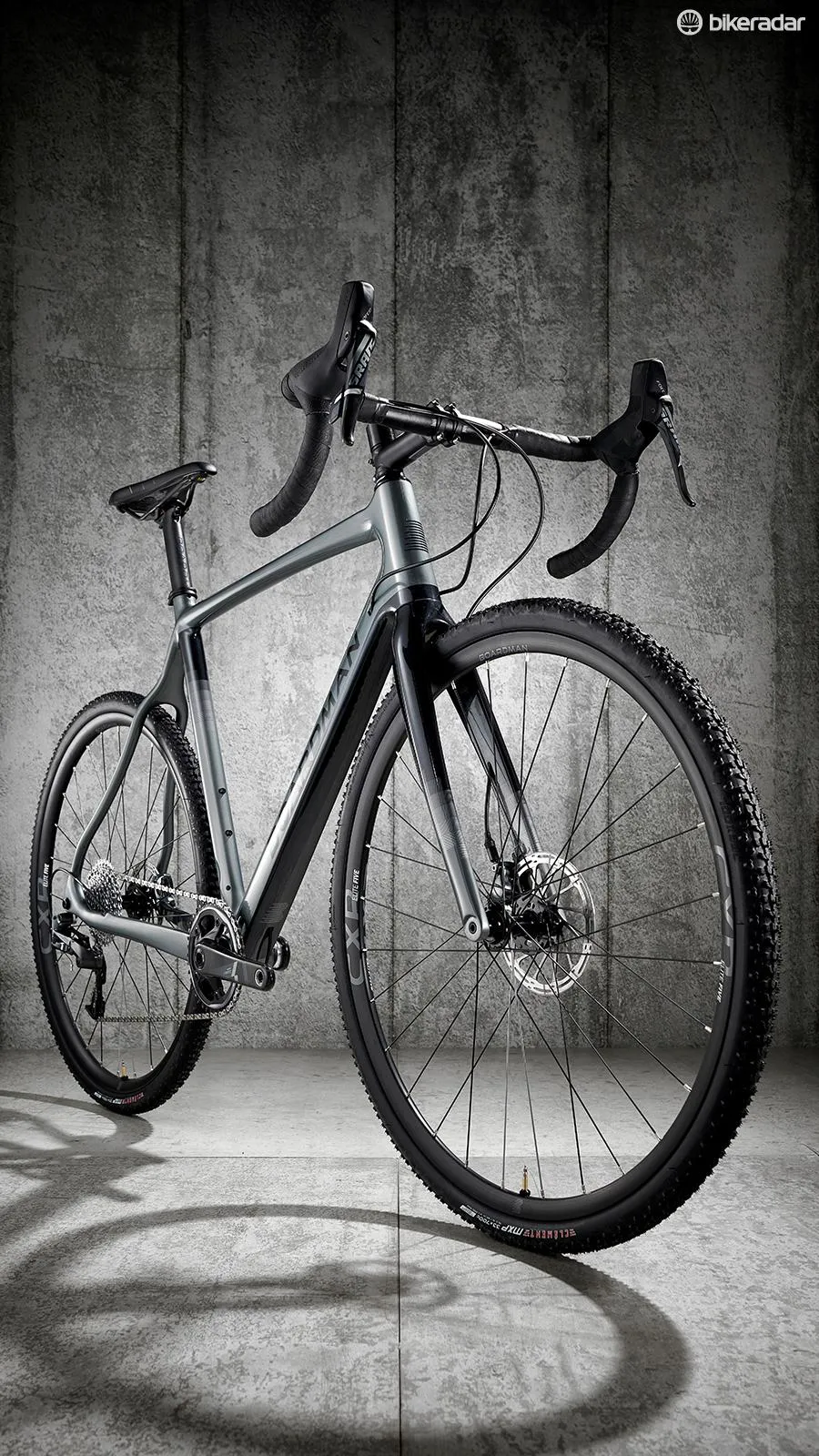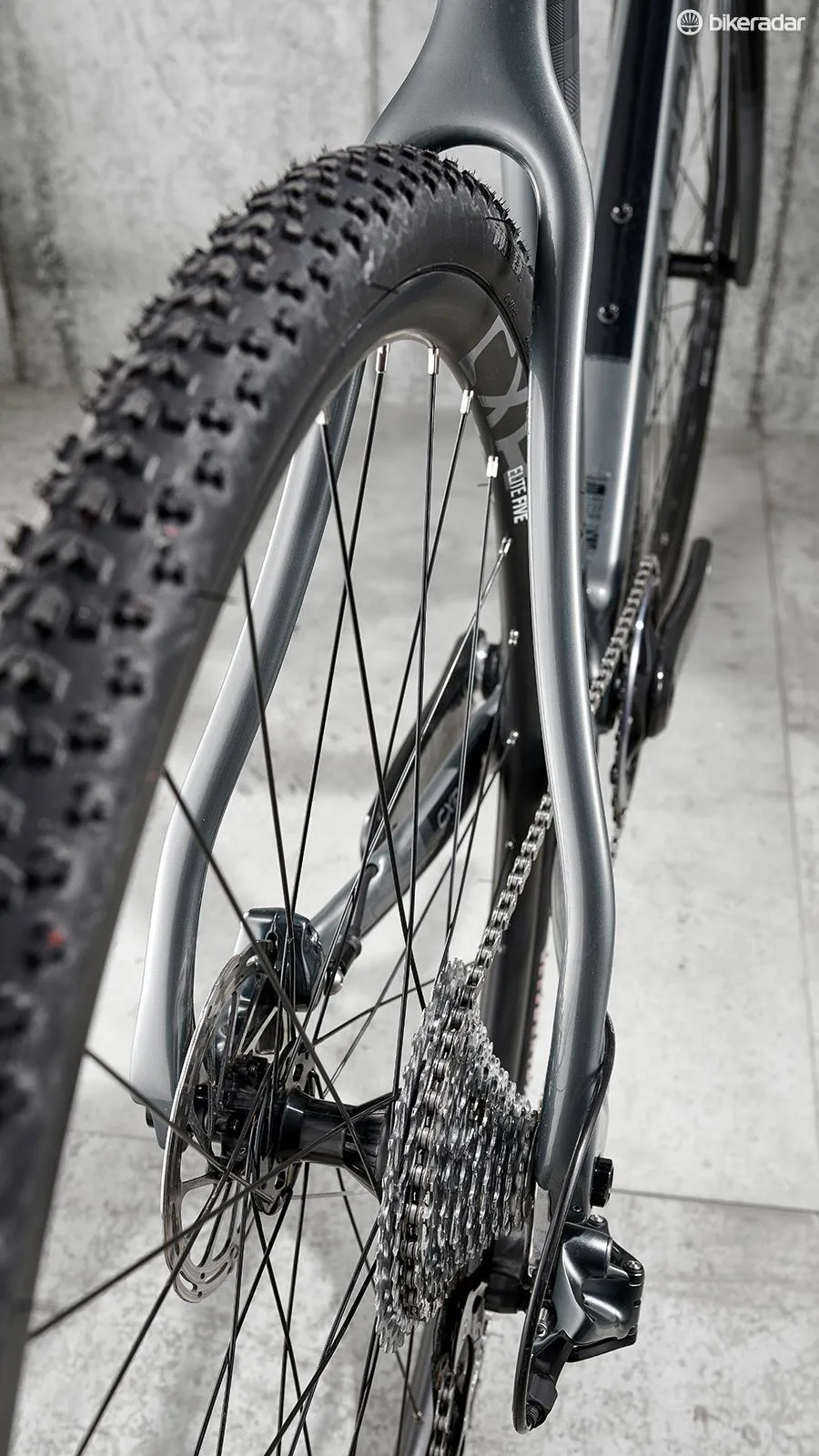Boardman’s CXR frameset has been redesigned to improve tyre clearance and handling, and all three models in the range share the same C10 carbon construction. This CXR 9.2 sits between the CXR 9.0 and 9.4, and offers a SRAM Force 1 groupset, Fizik saddle, and Boardman’s own wheels and finishing kit.
The down tube is boxy, with an almost square profile, the top tube is triangular where it meets the tapered head-tube, and becomes ovalised, via a flatter mid-section, and the round seat-tube is topped with a 31.6mm diameter carbon seatpost.
Boardman’s wishbone seatstays are flattened and join the deep, outward curved chainstays at beefy dropouts. The subtly curved fork has a purposeful look, and there are flat-mount hydraulic disc calipers at both ends.
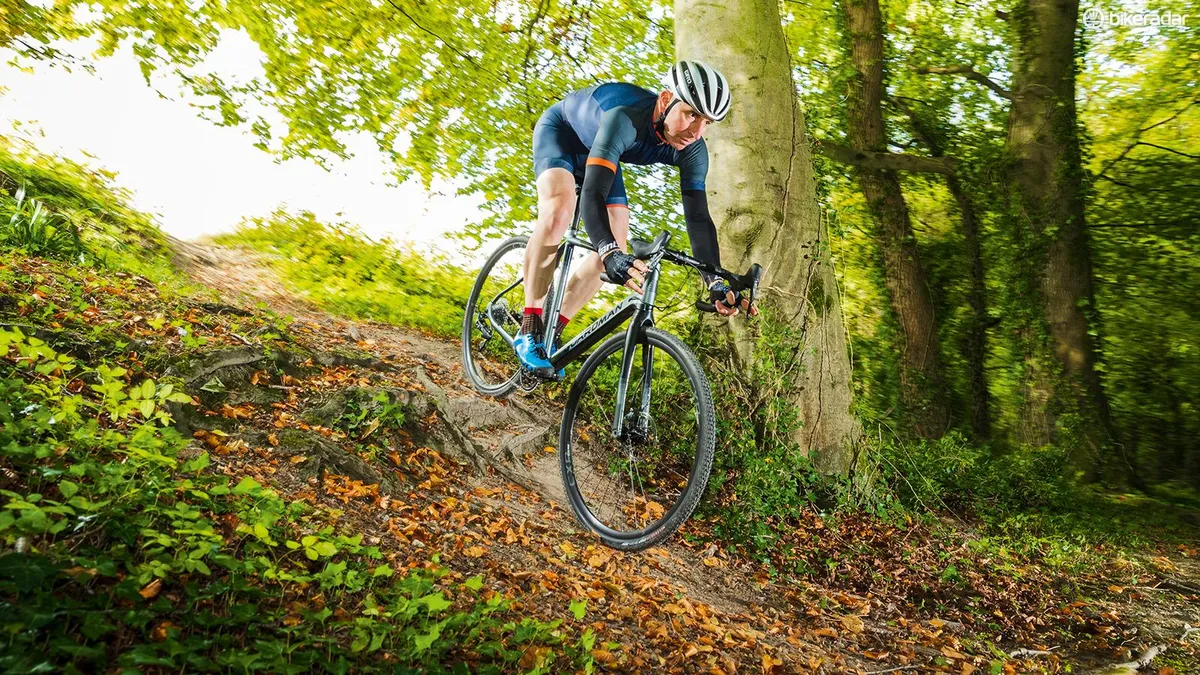
Although built with a 1x drivetrain, the CXR can be converted for a two-ring setup, with internal top-tube cable routing, seatpost cable stop, electronic wire port and front mech-friendly clearance dimple in the seat tube.
But just because you can doesn’t mean that you should, as SRAM’s 1x drivetrains are perfect for cyclocross, and the 40-tooth ring with 11-36 cassette here give you the gearing range to conquer anything that’s rideable on a ’cross course. If it’s unrideable, the flattened top-tube sits nicely on the shoulder too.
All CXRs will be supplied with tubeless valves, and my test bike arrived already set up tubeless. The CXR Elite Five wheelset has 28-hole asymmetric aluminium rims that are 26mm externally, 21mm internally and 23mm tall. They’re fitted with Clément’s 33mm MXP tubeless tyres.
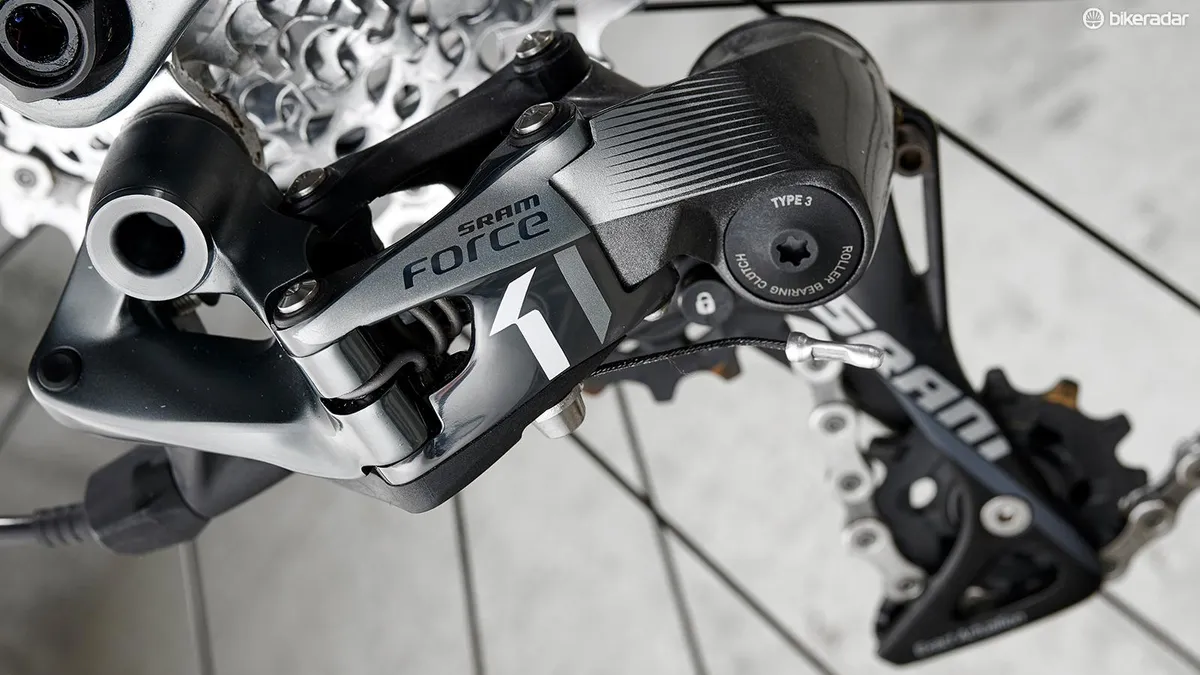
Boardman CXR 9.2 ride impressions
With an overall mass of 8.23kg, and great acceleration, the bike was at least as competitive as the rider. I dropped the tyre pressures to 21psi front and 22psi rear to help in slippery race conditions, and despite extensive off-cambers plus climbs and descents on grassy banks, they remained secure. Such pressures aren’t recommended, but dependent on rider weight (77kg), specific setup and riding style, it’s achievable.
Through constant switchbacks, high-speed corners and gnarly sticky mud technical sections, the CXR’s handling always felt positive. Dismounting for two hurdles each lap, and a carry through an almost unrideable section, was undramatic, and the bike performed as well as some that cost much more.
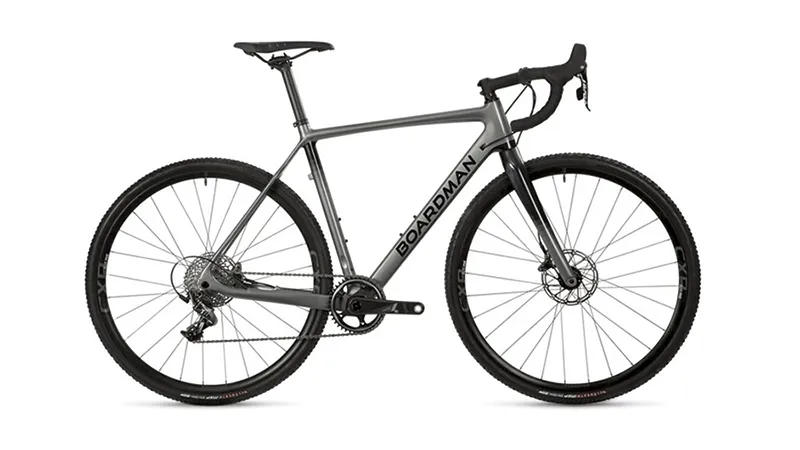
Chainstay clearance is as good as it can be behind a narrow, alloy insert-based PF30 bottom bracket shell, but the enlarged tyres fill much of it, and I did have quite a build up of muck by the finish.
The chainring and mech were wearing plenty of leaves, grass and mud too, but typically for Force 1, still functioned perfectly. That broad, flat-bottomed down-tube also creates a place where a lot of mud can stick, but the CXR coped well in pretty tough conditions.
Big tyres and low pressures colour comfort judgements, but even on the roughest sections of the course, the CXR felt composed with good shock absorption. The Boardman cockpit felt solid, and Fizik’s Tundra saddle comfortable enough.
I’d prefer some sort of sealing on the unused top-tube cable channel, and the down tube’s rear brake hose entry and exit holes to prevent water ingress, but there are drain holes.

